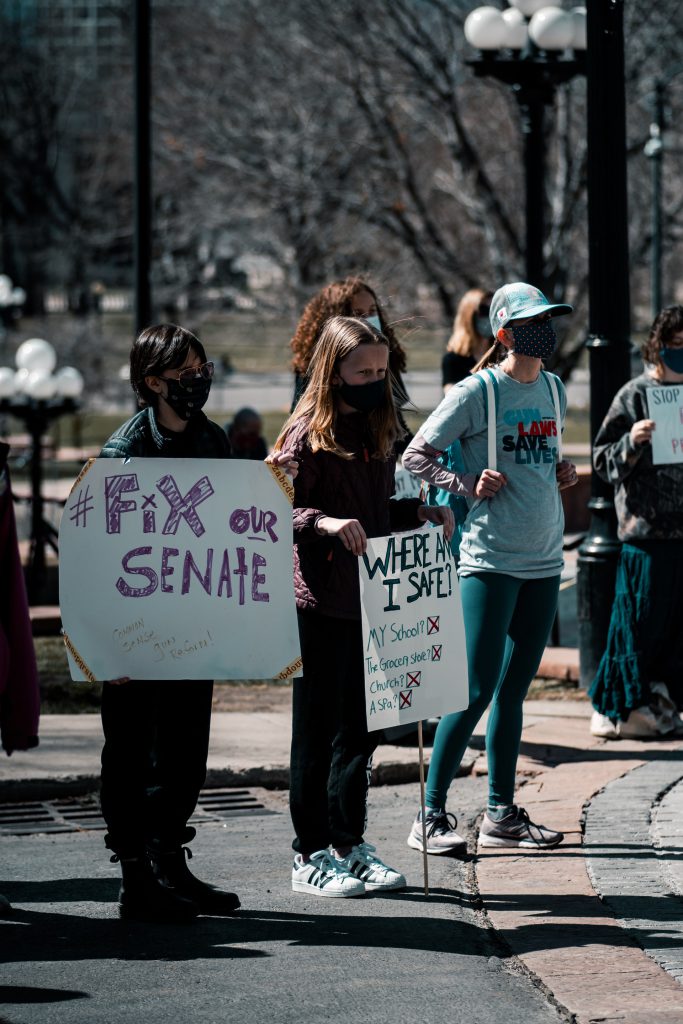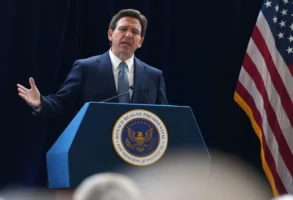
Published April 5, 2021
Across the country, at both the state and federal levels, Republican legislators are signing onto seemingly bipartisan bills that mandate “action civics” — out-of-school student protests and lobbying (nearly always for leftist causes) — for course credit. Few Republicans have even heard of action civics, so it’s easy enough to deceive them. When they see a proposal for “project-based civics,” they think “internship at the mayor’s office” or “debate club.” Little do these Republican legislators know that they’re actually authorizing public-school students to organize course-credited out-of-school demonstrations or lobbying expeditions for gun control, the Green New Deal, or defunding the police.
This is exactly what is happening in Rhode Island, where an action-civics bill in the state House (H5028) is co-sponsored by five Democrats and two Republicans, with Republican representative Brian Newberry as primary sponsor, while an identical bill in the state Senate (SO354) is sponsored by three Republicans and one Democrat, with Republican senator Jessica de la Cruz as primary sponsor.
The Rhode Island “Civics Literacy Act” begins with some attractive rhetoric about the importance of the Declaration, the Constitution, the Federalist Papers, and such. It turns out, however, that assessment for the course is to be “project based.” In other words, students will be assessed on reflection papers they write about the out-of-school political protests and lobbying “projects” they’re commanded to undertake by the new law.
Rhode Island’s action-civics bill is particularly striking, in that it actually mandates lobbying. Students are directed to choose a “local community issue” and then “engage an institution of government to influence the issue.” They’re graded on the “summative assessment” they write about the “process and outcomes” of their lobbying efforts.
The phrase “local community issue” sounds delimiting, and it’s true that action-civics projects often focus on local school boards and such. Yet action-civics projects frequently have students launching protests or lobbying expeditions over state and national issues that affect their localities. A school shooting or a play to lower the voting age for municipal elections can easily send classes to state legislatures, or even Congress, to lobby.
Between teacher bias, peer pressure, and the influence of the leftist non-profits that typically manage the selection of such “projects,” Rhode Island’s Republicans are effectively ordering public-school students to descend on their own offices to demand that they vote for left-leaning legislation. Even liberal U.S. senators like Dianne Feinstein have found themselves surrounded and harangued by students far more interested in putting on a show of anger than understanding both sides of the issue they came to protest about.
There are plenty of other problems with the Rhode Island Civics Literacy Act. Illinois, the model state for radical action-civics laws, has just put in place ultra-woke teaching standards grounded in the practice of “Culturally Responsive Teaching” (a derivative of Critical Race Theory). Those standards push teachers to affirm that America is “systemically racist” and that gender identity is “fluid,” and press teachers to enter training to “mitigate” their Eurocentrism and “whiteness.” Standards and curricula based on these ideas could easily be adopted for civics courses by the Rhode Island Commissioner of Elementary and Secondary Education based on directives in the bill to “ensure a diverse teacher workforce” and “reflect student demographics to the maximum extent possible.” These were precisely the public justifications for the adoption of the Culturally Responsive Teaching Standards in Illinois.
What’s more, the Rhode Island Civics Literacy Act follows the Illinois model in setting up a separate fund for civics education that allows “private sources” to contribute to the fund. In Illinois, this sort of provision has allowed far-left foundations committed to Critical Race Theory to effectively take over the training of civics teachers and provision of curricula.
Finally, the proposed bill authorizes the development of student’s ability to “evaluate media.” Unfortunately, most available “media literacy” curricula lionize the mainstream press and their fact-checkers, ignore the problem of media bias, and in practice tend to direct students away from conservative sources.
In short, the Rhode Island Civic Literacy Act is a partisan leftist’s dream. It essentially mandates out-of-school political activism and lobbying (the vast majority of which will be on behalf of leftist causes). It provides an opening for the introduction of Critical Race Theory. It will push students away from conservative media. And it will likely be hijacked by leftist foundations dedicated to ensuring that all the aforesaid scenarios play out.
The best way to prevent all of this would be for Rhode Island to pass a civics bill with provisions inspired by the model “Partisanship Out of Civics Act.” That would preserve traditional civic education while blocking mandatory student lobbying, Critical Race Theory-based teacher training, and the de facto takeover of Rhode Island’s public education system by leftist private foundations.
Fortunately, the National Association of Scholars has formed an alliance to oppose action civics and educate citizens and legislators about this tendentious politicization of K-12 education masquerading under the name “civics.” Let’s hope legislators in Rhode Island and across the country wake up before it’s too late.
Stanley Kurtz is a senior fellow at the Ethics and Public Policy Center.




